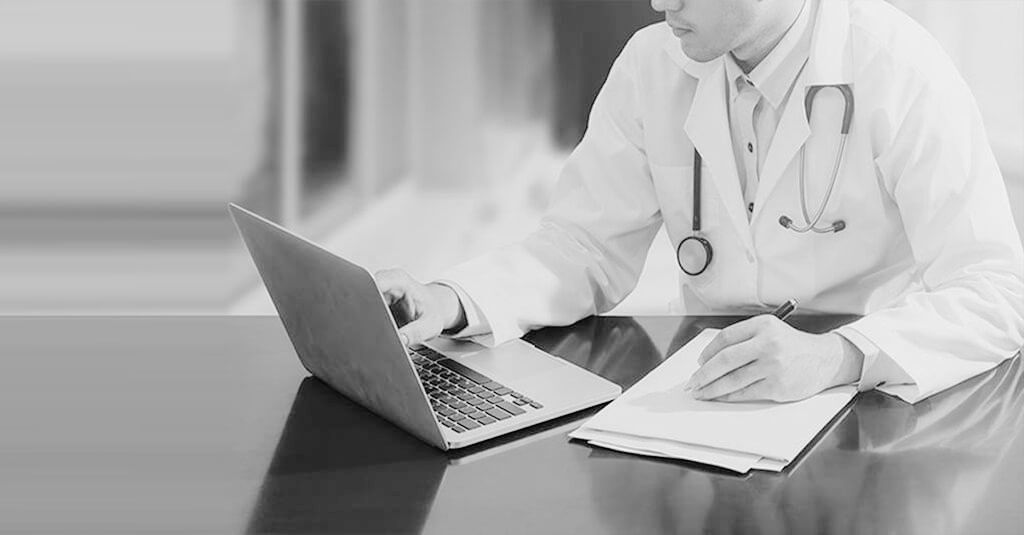Medical workers need specialized training and years of experience. Learning through work experience is a requirement of the job.
But how can you train staff to meet obstacles at work without endangering patients? Is there a way to tailor training for each member of your medical staff while still enhancing compliance across the board?
Let's look at some of the most obvious benefits of healthcare LMS for your hospital employees.
What is Healthcare LMS?
Healthcare LMSs are software platforms that help medical practitioners in managing their online learning programs without distracting them too much from their primary responsibility (i.e., patient care). Users of the program can create training modules for internal use by doctors and other medical workers. Related article: The 13 most important advantages of corporate eLearning.
An LMS allows you to:
Deliver training materials and online courses on demand
Use tests and quizzes to evaluate the knowledge of your students
Monitor students development and success rates
Analyze how training affects workers productivity and/or compliance
Provide your staff with accreditations and certificates.
Common features of Healthcare LMS Software
The following are a few key features to consider while choosing an LMS for your healthcare organization:
- Compliance and certification management
The LMS should be able to keep track of and handle compliance-related training, such as obligatory yearly courses. It should also be able to track the status of student certifications and their expiration dates. It is possible to handle both with the support of an LMS like Thinkific Plus.
- eLearning content management
The LMS should be able to host and deliver a range of eLearning content. Many organizations employ SCORM (Sharable Content Object Reference Model) content, video, and audio files. To measure student progress and completion rates, the LMS has to be able to incorporate SCORM.
- Mobile learning
Students should be able to access training programs and resources on the go using the LMS mobile capabilities. Students will benefit from having access to the most recent policies and procedures when they are out and about.
- Gamification
The learning experience should be gamified using the LMS. This may increase motivation and staff engagement.
- Student training records
The LMS should have the capacity to store students' training records in one place. This will make it easier for you to monitor which students have finished particular courses and evaluate the effectiveness of your programs.
- Video conferencing
Live video sessions or webinars have to be supported by the LMS. Online training, customer support, and virtual classroom sessions can all make use of this feature.
- Knowledge evaluation
Through tests and questionnaires, the LMS should be able to gauge students' understanding. You may use this to determine which topics require more instruction.
- Progress reporting
Reports on students' progress and completion rates have to be produced by the LMS. You may use this information to evaluate how well your training programs are helping students perform.
Benefits of Healthcare LMS
Improved Patient Care
The quality of training that medical staff receives is reflected in the treatment that patients get. Workers may receive well-structured training and review challenging medical processes with the help of a healthcare learning management system. Medical practitioners may concentrate on acquiring new skills and information whenever they have the time thanks to the library of courses that are available to them.
A healthcare LMS is more efficient than conventional learning techniques. Not merely because it makes knowledge instantly available, but also because of the organization and dissemination of that information. In addition to selecting delivery methods, such as podcasts or video lectures, learners may take use of the platforms immersive learning tools.
Tools for augmented and virtual reality can be helpful in simulating medical situations, such as surgery issues, which can be highly beneficial for learning. For example, a VR software that replicates a dialysis machine enables users to practice using this particular kidney treatment equipment and carry out a process as long as they need to learn it properly. Related article: AI in eLearning. The Importance of Chatbots.

Flexibility
Healthcare industry is demanding and difficult. As a result, it is critical for L and D to allow staff members freedom to study when and how they want to and offer seamless learning opportunities across all settings and platforms. When using a desktop, laptop, smartphone, or tablet, eLearning content may seem consistent thanks to an LMS device-agnostic capability.
Evidently, compared to other conventional ways of learning, using this LMS feature resulted in greater rates of course completion and employee engagement. Therefore, offering native mobile apps that integrate with the learning platform is essential for experienced LMS companies.
Automated Compliance Training
Policies and regulations are constantly improving in the high-risk and high-regulation environment of healthcare to reduce risks. A unified, secure, and reliable platform is offered by an LMS to automatically host, administer, and deliver Compliance Training. Instead of seeing compliance only as a duty, it may help foster a culture of complaint conduct within the workforce.
Quickly Updated Training Content
The fact that medicine is always evolving is impressive. Regardless of how far we have gone, there is always room for new knowledge and technical innovation. Better techniques are replacing outdated standards, according to recent studies. As a result, medical professionals, including physicians, nurses, and other staff members, are always learning new things. It is crucial to think of strategies to keep them informed about the most recent research in a career where time is a scarce resource.
Courses, guides, and other learning resources may all be updated with just one click with the use of a healthcare learning management system. Medical practitioners can get a condensed version to quickly see what has changed. Institutions may then make sure that every employee has access to the most recent information and the best equipment for carrying out their duties.
Your course instructors and other members of the administrative team may be able to quickly replace outdated files and material with the most recent information thanks to the concentration of resources and content.
Keeping Track of Employee Development
Organizations can keep track of their employees learning and development with the help of the insightful reporting tools that come with learning management systems. In a medical setting, it implies that organizations may monitor the development of medical specialists and direct them toward the career paths they choose to pursue.
In order to make sure that staff credentials fit the standards the institution is attempting to keep, it is also possible to view the test results, attendance records, time logs, and other data. The reporting options in your healthcare LMS can assist records and audit trails in case a regulatory body or agency has to evaluate your certifications or continuing professional education credits.
Lower Training Expenditures
When students receive their education in a typical classroom setting, there are additional expenses for a trainer, accommodation, meals, and other needs. However, an LMS significantly reduces this extra expense by enabling institutions to develop their own eLearning programs or to acquire them from third parties and make them accessible to students. Studies on cost-cutting using LMS or eLearning have revealed that these methods save an average of 68% on paying trainers, providing transportation, and housing for additional classes. Related article: What is the Price of not Providing Employee Training?
In case you need a healthcare LMS, contact the PioGroup Software team to discuss your business goals, and weu'll help you to analyze and create LMS according to your requirements.
Improving Company Reputation
One key benefit that comes from all these advantages is improved brand image. Patients are properly taken care of, compliance is preserved, and your medical staff is continuously supported. In other words, your hospital sets the pace for healthcare. Patients pick you over competing medical facilities. And medical specialists are interested in working with your company.


Examples of the Most Popular Healthcare LMS Vendors
iSpring Learn

Docebo
If you are looking to substantially automate the learning management process, Docebo is a good LMS for the healthcare industry. It takes pride in being adaptable to any firm of any size and in any industry, including the healthcare sector. In order to make it simple to adapt your training program to the many sorts of healthcare professionals in your business, it also divides departments into roles and assigns roles-specific courses to them.
There is a library of pre-made courses included with the LMS, but you can also create complex healthcare training from scratch, including blended learning programs with instructor-led training, social learning, and gamification. Its extensive range of integrations is another aspect that distinguishes it from other healthcare LMSs.It integrates with Shopify and Zendesk, if you are looking for eCommerce platforms that let you promote and sell online courses for healthcare businesses.
EthosCE

EthosCE is one of the best healthcare eLearning options, because it was created especially for medical professionals. Healthcare organizations, medical associations, academic institutions, and providers of medical education make up its major clientele. Not only do they produce PARS-compliant analytics and integrate with ACCME (Accreditation Council for Continuing Medical Education) web services, but they also provide a number of features that aid training managers in putting medical risk management procedures into place and keeping an eye on them.
It offers the option of training via eLearning, live classrooms, or web conferencing technologies like Zoom, Cvent, and Webex because it is a cloud-based solution. Additionally, you may utilize third-party software to develop complex, interactive courses since it supports multimedia and SCORM material.
Conclusion
LMS learning has established itself as a critical feature of L&D operations in the intricate world of healthcare, applying capacity and reach to various learning demands, modalities, and anticipated outcomes.
While upholding a variety of standards and norms, it is essential in boosting employees' engagement, competency, and ultimately company's profits. Businesses may create a secure and highly productive workplace and provide the best healthcare goods and services to society by making proactive use of the appropriate LMS. If you need help with LMS development, PioGroup is here to help you.





